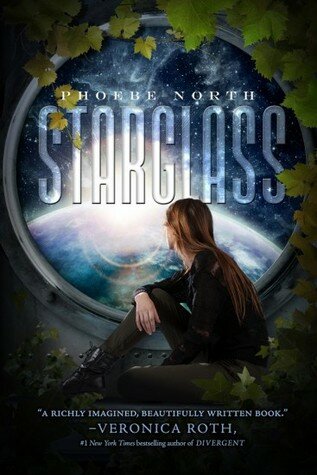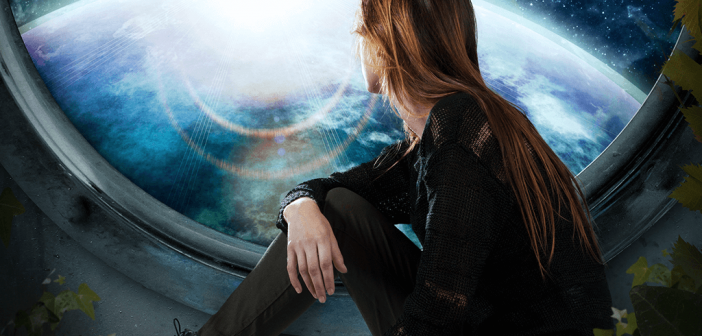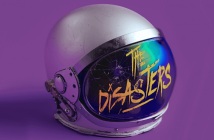 After Starglass was published in the summer of 2013, I went into a creative and emotional tailspin.
After Starglass was published in the summer of 2013, I went into a creative and emotional tailspin.
For one thing, I was pregnant, and my brain was mush; for another, I’d just finished a rewrite of my second book–which clocked in at just under 100,000 words – in four short months. I kept starting books and failing to finish them. During this time, I became great at crafting highly commercial pitches – for books I had no interest in writing. I’d get a few pages or a dozen pages or 10,000 words in, and my books would stall. My then-agent encouraged me to write books that sparked; I was trying my hardest, and yet every single concept I tried to write fell flat.
When my daughter was an infant, I quickly drafted a novel about midwives in a haze of breastfeeding hormones. It was an unlikely book – a middle grade novel about a Jewish girl in the times of Exodus – but an emotionally important book for me as a writer, one in which I tried to synthesize the biological and cultural processes I was undertaking as a new mother into some sort of creative expression. Though that book remains unsold, I never doubted the necessity of writing it. It consumed me for a time, and then I set it aside to try to write a YA novel. Again.
And once again, I became hung up on the conflicting messages I’d heard about the market and the sort of book I was meant to write. Science fiction wasn’t selling. Unlikeable girls weren’t selling. Books needed to have a high concept hook to sell. I picked up and put down old projects. I spawned four or five book concepts daily.
Part of the problem was economic anxiety. When I was pregnant, I left my job in a flurry of ninth month hormones. We needed income, and for that I needed to sell a book. But when I sat down to write, a little voice whispered in my ear that my ideas weren’t big enough, hooky enough, that they were too strange and awkward for anyone to ever want to read them, much less pay me for them.
In the end, I had to throw away the notion of a “commercial hit” to be able to write again. I unsubscribed from Publisher’s Marketplace, and stopped following deal reports entirely. Once, I’d prided myself on being exceptionally well-read in my genre, but the result was a sort of creative logjam that completely prevented me from moving forward. I had to stop listening to what others were doing and find a story that spoke to me.
Part of the solution, ironically, was to bring in writing income elsewhere. I began to ghostwrite romance novels, quick and dirty books that were the epitome of commercial fiction. I made every creative concession that I was asked to make. I learned that I could be a commercial and commercially successful writer in certain spheres. And yet doing so only reiterated something for me – perhaps something I should have known all along. My YA novels needed to be strange and a-commercial for them to even begin to fly creatively.
Ironically, the book I ended up finally finishing was a project I’d picked up and put down dozens of times before. I’d first tried writing it shortly after college, more than a decade ago now. It had been a graphic novel and a poem sequence; as a series of poems, a graduate school professor called the story “quaint” and “tired” and encouraged me not to finish it. I had reinvented it again and again, in a dozen different forms. Most recently, it had been a historical novel. But it hadn’t been right.
When I finally picked up writing it again in the fall of 2015, I was terrified. But I realized I had to I ask myself not how I could make this book sell, but how I could make it sing. I realized I needed to write this book to the best of my ability no matter what the market thought or what the economic outcome.
The result was incredibly freeing. For one thing, throwing the market aside allowed me to challenge myself in a way I hadn’t previously. This manuscript uses multiple formats, conceits, and voices. I’m still not entirely sure it’s a YA novel, though I suppose I’ll figure that out when I query soon! For another, it gave me permission to improve myself in a way that I couldn’t when I was drafting a book in 4 months under contract. If I felt some aspect of my writing was weak – if my dialogue fell flat or a character was underdeveloped – I took the time to stop, reconsider, research, and revise.
The result is a big book that, still, might not sell. But I’m thrilled with the outcome: a piece of creative work of which I’m truly proud. Focusing on myself and what brought me joy with writing (as well as what scared me the most) is the best thing I could have done, not only for myself, but for my writing as a whole.




